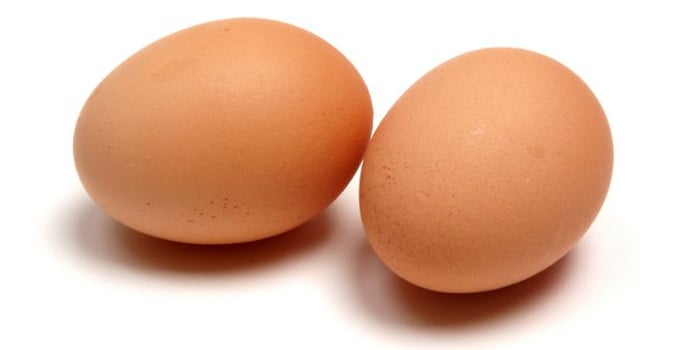Eating a healthy breakfast is a key necessity to weight control and prevention of illnesses. Skipping breakfast can severely impair your metabolism, mental alertness and heighten your chances of weight gain. A nutritionally balanced breakfast should be low in fat and include high quality foods that provide adequate amount of carbohydrates, proteins, as well as essential vitamins and minerals.
One excellent breakfast item is the egg, but some people fear that eating the yolk can cause weight gain and an increase in cholesterol. However, tossing out the yolk is a mistake. Though egg whites contain less fat and calories, there are exclusive nutrients in the yolk, which supplies food for your brain, metabolism and your immunity.
Health Advantages of a Whole Egg
Egg whites contain about half of the egg proteins. They are also a good source of riboflavin and selenium, which are important to your energy production and elimination of toxins. In two whites, you get about 6 grams of proteins and 18% of your daily recommended value (RDV) of riboflavin and selenium.
The rest of egg nutrition is in the yolk. Egg yolk is an excellent source of vitamins A, B12, D, E, K, folate and pantothenic acid. It also contains a variety of essential minerals such as calcium, phosphorus, iron, zinc and selenium. Eating the yolk not only gives you a boost in your metabolism, it also increases your red blood cell production and improves the oxygen carrying capacity of your blood.
Another important advantage of eating the yolk is in its content of valuable antioxidants. The yellow coloring of the yolk is indicative of high concentrations of lutein and zeaxanthin. These carotenoids along with vitamin E can help fend off free radical attacks and lower your risks of diseases. Having an egg for breakfast every morning is especially beneficial for your eyes and skin. It prevents you from developing macular degeneration and helps slow down your aging process.
Egg yolk is a wonderful brain food. It provides you with a tremendous amount of choline which can improve your memory and cognitive response. Studies have linked dietary intake of choline with higher IQ results. Additionally, the omega-3 fatty acids and nutrients like folate, pantothenic acid and zinc are also important for your brain function. Eating the yolk can reduce your stress level and prevent neurological disorders like depression, Alzheimer's and Parkinson's diseases.
Egg Yolk and Your Heart
You may shy away from egg yolks because of their high cholesterol and fat concentrations. A large egg yolk contains about 210 milligrams of cholesterol and 5 grams of fat. However, studies shown that eating one egg everyday does not heighten your potential for high blood pressure and heart diseases. One reason for this is because most of the fats in the yolk are unsaturated and are good for your health. Fats like oleic and linoleic acids can reduce dietary fat and cholesterol absorption in your intestines. These fatty acids also have antioxidant properties which protect your blood vessels from breaking under pressure. Egg yolk also contains a number of cholesterol lowering nutrients. Folic acid and vitamin B6 prevent blood cholesterol coagulation and facilitate their removal so that eating the yolk does not cause problems for your heart.
The next time you eat eggs for breakfast, remember that a whole egg contains a a wide array of nutrients.



